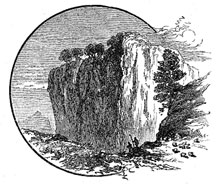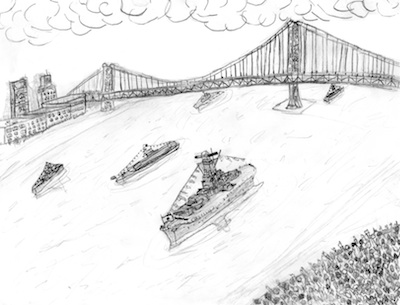
P.O. Box 1333
Merchantville NJ 08109, USA
Email: info@arxpub.com
 |
Arx Publishing, LLC P.O. Box 1333 Merchantville NJ 08109, USA Email: info@arxpub.com |
|
|
|
||
 |
THE Tarpeian Rock An Annual Literary Magazine "Hinc ad Tarpeiam sedem et Capitolia ducit aurea nunc, olim siluestribus horrida dumis." --Virgil's Aeneid, VIII, l. 347-8 |
Articles from the 2016 issue... The Resplendent Dawn of a Serene Future Father Sun and Daughter Moon The Secret of the Climbing Tree Return to Tarpeian Rock homepage |
 “You’re crazy!” the boys cried, incredulous. Everyone knew that
relations between the British and Japanese had been on a razor’s
edge since the end of the Anglo-Japanese War four years before.
The war ended in an armistice brokered by the United States, but
the British had been unhappy with the outcome. Sabers had
rattled noisily ever since, with Mr. Churchill recently
declaring that the Japanese occupation of Hong Kong was,
“illegal, immoral and would not stand so long as I stand.” The
idea that British and Japanese warships could be moored together
peacefully in the same port was astounding.
“You’re crazy!” the boys cried, incredulous. Everyone knew that
relations between the British and Japanese had been on a razor’s
edge since the end of the Anglo-Japanese War four years before.
The war ended in an armistice brokered by the United States, but
the British had been unhappy with the outcome. Sabers had
rattled noisily ever since, with Mr. Churchill recently
declaring that the Japanese occupation of Hong Kong was,
“illegal, immoral and would not stand so long as I stand.” The
idea that British and Japanese warships could be moored together
peacefully in the same port was astounding.